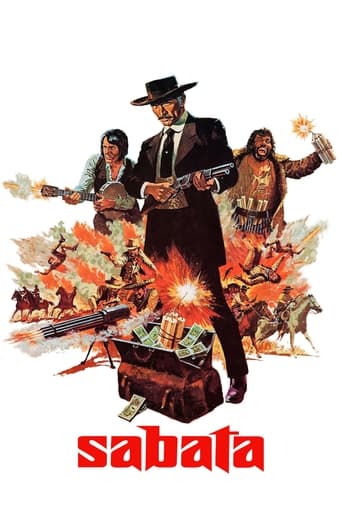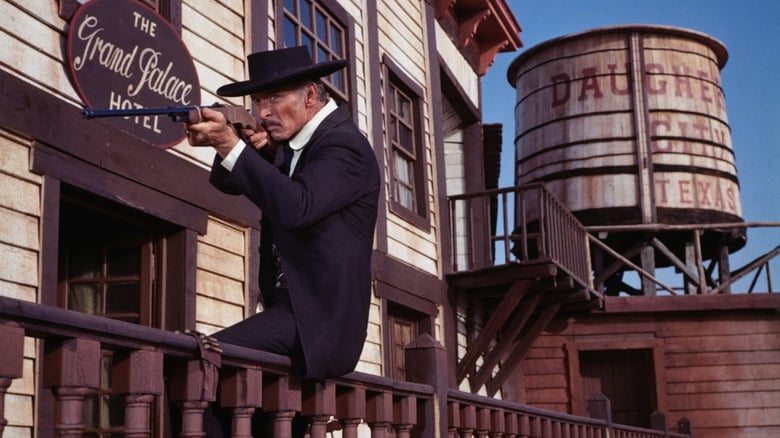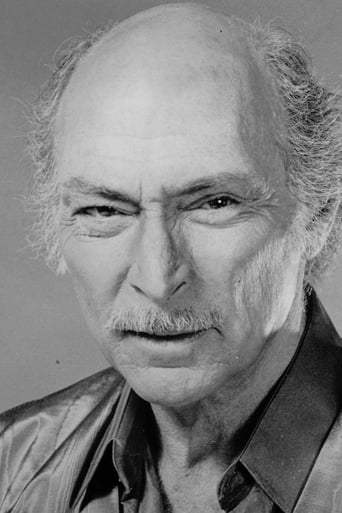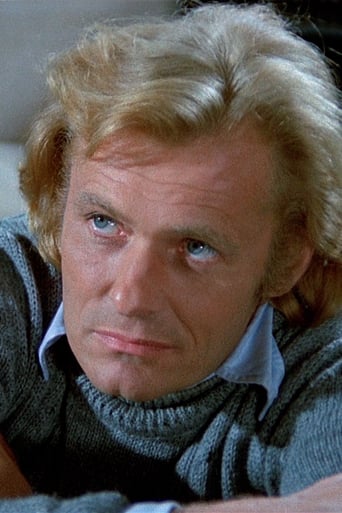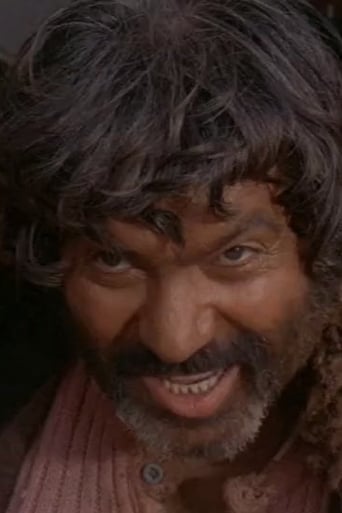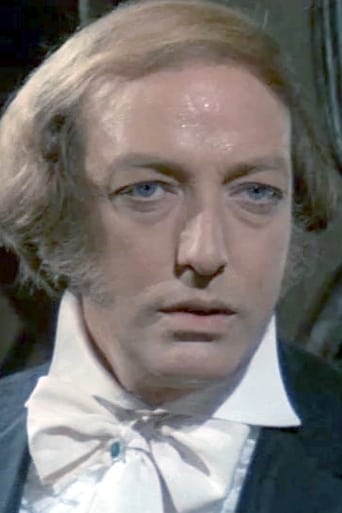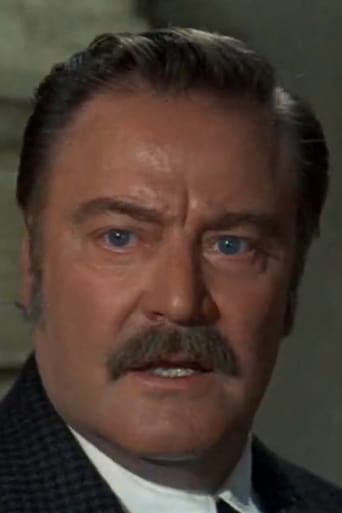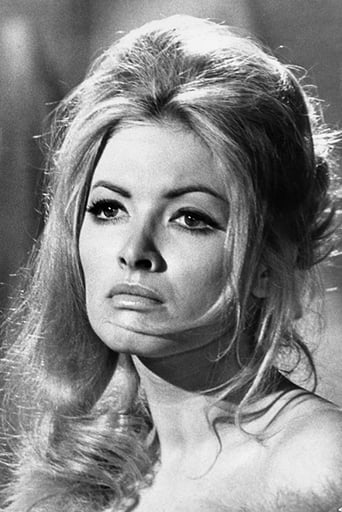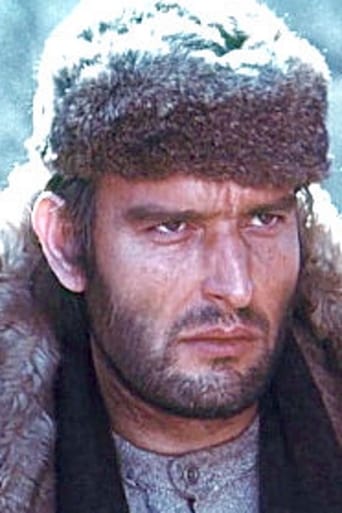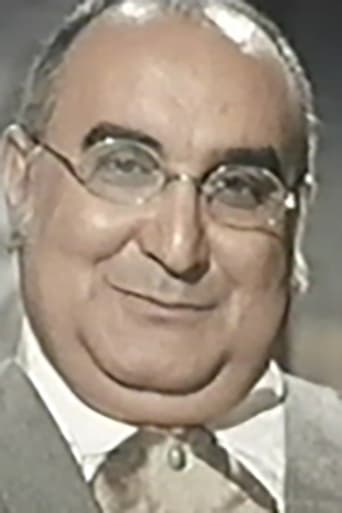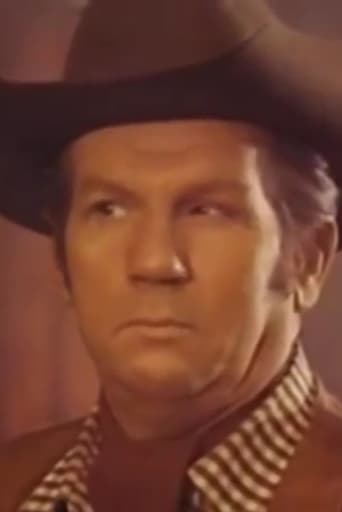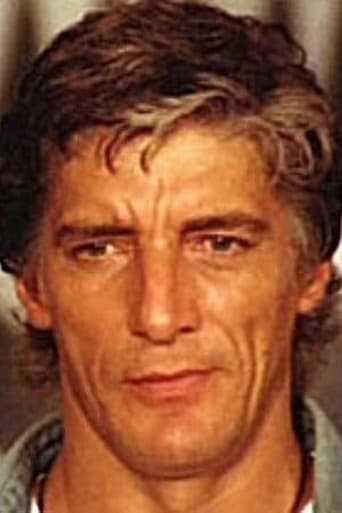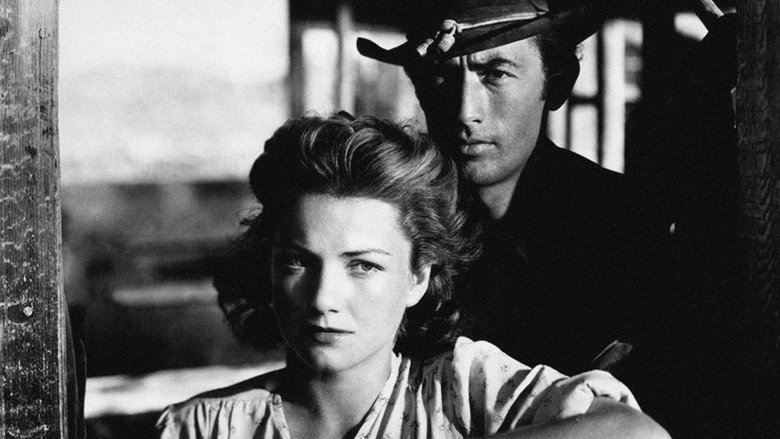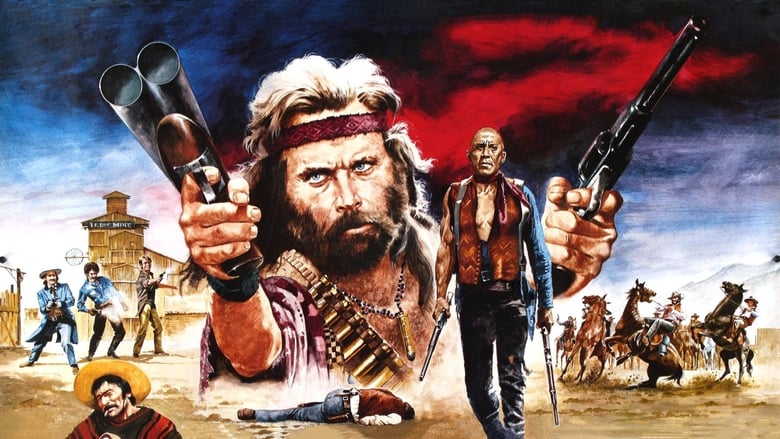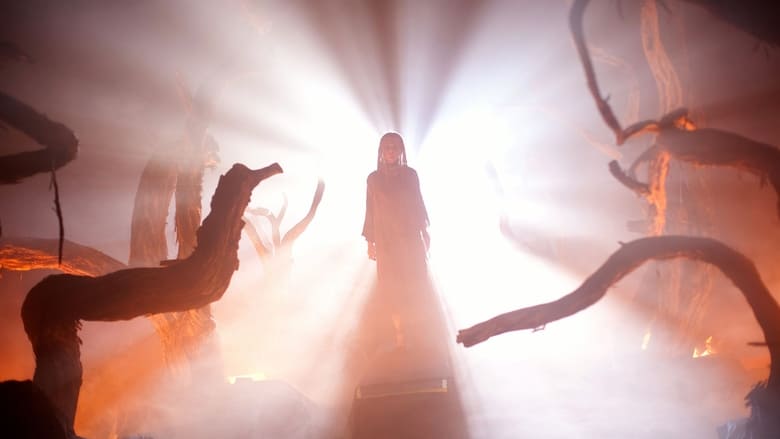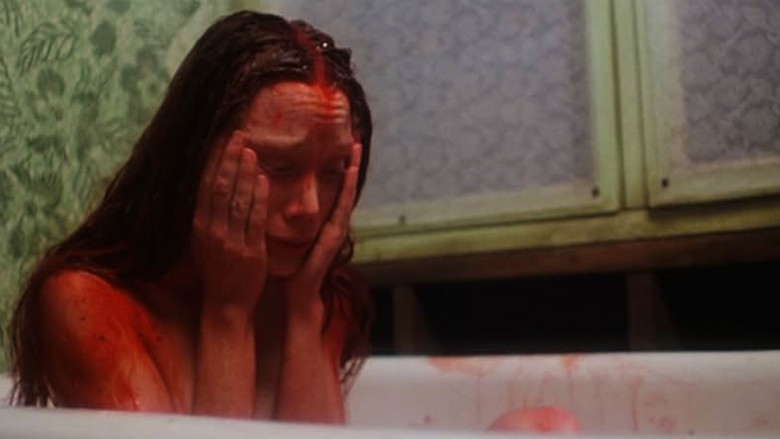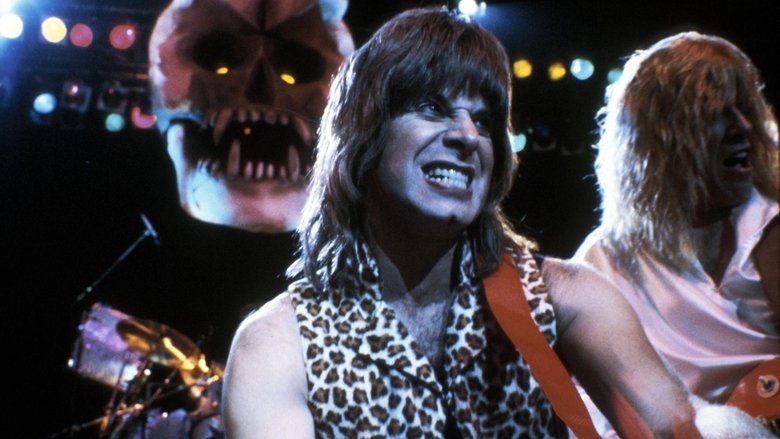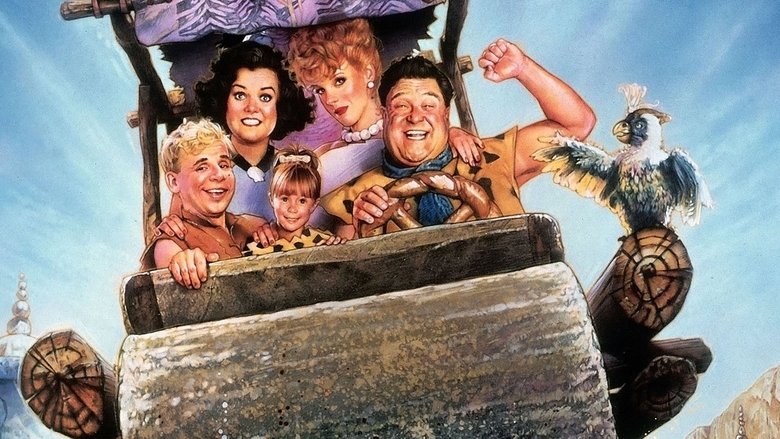Several pillars of society have robbed an Army safe containing $100,000 so they can buy the land upon which the coming railroad will be built. But they haven't reckoned on the presence of the master gunslinger, Sabata.


Similar titles
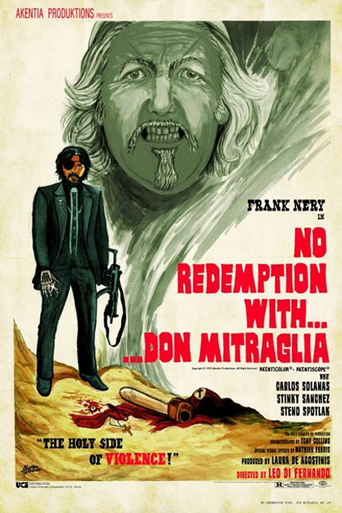
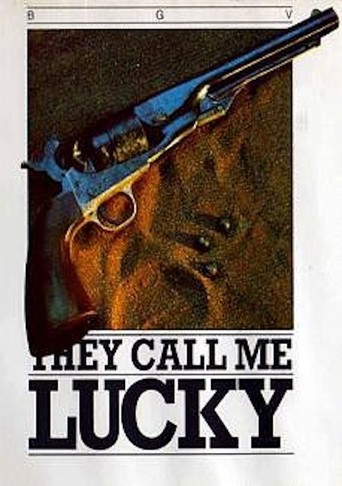
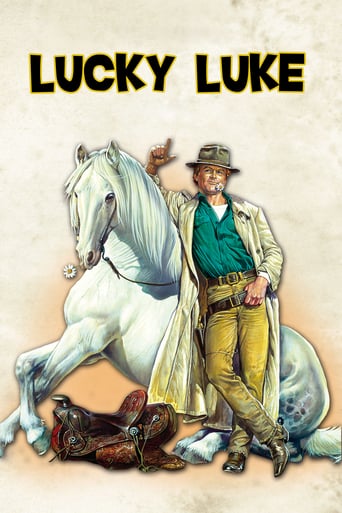
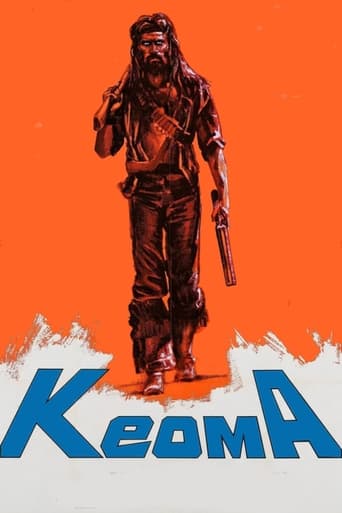
Reviews
'Sabata' begins with a compelling exuberant country tune, in which people chant 'Ehi amico... c'è Sabata, hai chiuso!'. Exiting and snappy like only an Italian spaghetti western can be. Imagewise the same feeling for style and absurdity is present, there are some interesting shots with equally interesting camera angles. Soon Lee Van Cleef enters the picture.So you think you're in for a treat. But, despite the obvious creativity and originality, it's not a very good movie and could have been a lot more fun than it is. Lee Van Cleef and William Berger give life to interesting characters, as you should expect. Sabata's a mixture of LVC's persona in For a few dollars more and James Bond and showcases inventive ways of killing people. Berger's fine as the enigmatic Banjo, who plays, well yeah, a banjo. The irritating Pedro Sanchez character and the ridiculousness of the Alley Cat character are something else.But the real evildoer in this movie is the muddled plot. It's incoherent, drags and you never know when it will end. The movie is a bit longer than an hour and a half, but it certainly feels like a much longer movie. But not to want to sound too negative, it's still fun to watch. There are enough interesting ideas and fine camera-work to get something out of it. Just don't expect it to be on the same level as any Sergio Leone movie.
What's not to like about a Lee Van Cleef Western, especially of the spaghetti variety. As the title character, Van Cleef is a one man demolition crew as he takes out one outlaw after another upon recovering a safe containing a hundred thousand dollar military payroll. With his first seven rifle shots, Sabata kills seven bandits and hauls them back to Daugherty City to collect his reward. You know, things haven't changed much over the years. I just caught Tarentino's "Django Unchained" the other day, and you could put a Western hero up against an army of outlaws and they always come away virtually unscratched. Except that Sabata caught a crease in the neck from Banjo (William Berger), I guess they had to show he was human after all.Now I've caught my share of European Westerns, but it was quite some number before I got to see the kind of flying stunts and acrobatics that are on display here. At least here they show you the see-saw contraption that Alley Cat (Aldo Conti) used at times, otherwise you have to take it on faith that he's a human kangaroo. I have to admit, the guy was pretty athletic, he did a couple of tumbles without the aid of any gimmicks a few times, so you know he had to have some talent.However the story has some disjointed pacing at times that make you wonder how one scene connected to the next. Such was the case with the five Claytons who arrived on the scene to take out Banjo - no set up, no prior mention of their names, and all of a sudden Banjo is gunning them down with his, well, banjo. The finale had the same abrupt kind of jump as well; Sabata agrees to face Banjo in a 'fair' showdown the next day, and wham, in the next scene they're drawing down on each other with virtually no time to transition the scene.But I guess it's all part of the genre. I've seen worse, and there's no replacing Van Cleef whether he's playing a good guy or a villain. A couple questions though, how did the posse get out of the canyon after Sabata's rock slide pinned them all in? And did anyone else notice the banner in Daugherty City with the name 'Jim Kincaid' on it - what was that about?
I just finished watching this film and I must say I had mixed feelings. I have seen quite a few Spaghetti Westerns such as The Lee Van Cleef Vehicles Gods Gun, The Grand Duel, Gunlaw (AKA.Day of Anger), The Good Die First, Death Rides a Horse, plus The Dollars Trilogy, Madron & Once upon a time in the west etc. I would have said this film would occupy the middle ground between the Excellent Dollars Trilogy, Once upon a time in the West, Death Rides a Horse and the total Rubbish such as The Good Die First & Gods Gun. Sabata was almost as good as Gunlaw A.K.A Day of Anger.For me Van Cleef was very good, but the rest of the cast was somewhat lacking in any real charisma. Banjo was probably the next best thing in the film but to me did not really look the part, The movie was also too humorous for my liking and including acrobats was going too far to take seriously, although I suspect this was not to be taken all that seriously.Linda Vera was absolutely stunning. For someone with beauty of that magnitude they should have increased her part and maybe made her a Femme Fatale type character ! The lead villain Stengel was decidedly poor and really could have been dealt with a lot quicker and easier as he did not come across as somebody to be feared. The various attempts on Sabata's life and him demanding more money each time also became quite tiresome, it seems the script writers ran out of ideas.All in all though this film was entertaining and I would give it a 5.5 out of 10.
Not that they will alter your enjoyment of this film but ...POSSIBLE SPOILERS AHEAD!!! There were three of them up for grabs back then; Clint Eastwood, Charles Bronson and Lee Van Cleef. Of course, Clint won the star and then history went its way. Charles went on to reign in the beautiful "Once Upon a Time in the West" alongside of Henry Fonda who did the best "against type" in cinema history. Lee Van Cleef followed Clint through "For a Few Dollars More" and the great but not-as-good-as-"Once Upon a Time In The West" classic "The Good The Bad and the Ugly".Clint had the squint but Lee Van Cleef was the actor all spaghetti westerns wanted. His eyes, the physical features of his face, his poise and delivery of lines (when the lines weren't way way dumb - he had a director, remember).Way up over the top bounty hunter, good-guy/bad-guy, supernatural marksmanship, mysterious even when the mystery isn't resolved ... he played the same character in many films, even a "shouldn't have been done" Magnificent Seven" outing."Sabata" gave him his role, three years after Clint's squint.With "Sabata", Lee found his role that Clint Eastwood found with his "Man with no name". "Sabata" was more tongue in cheek and visually energetic but it played exactly into the era. The "Sabata" series missed their chance the same way all those Country and Western singers missed their opportunity when Garth Brooks took things over.The second "Sabata" starred Yul Bryner as "Indio Black" ??!! and Lee stepped in for other sequels but the momentum was gone A lost possibility for cinema. It died on the vine.But "Sabata" remains with all its potential and presentation as a viable series of films whose history just wasn't to be.From the theme (catchy), to Banjo's music (so fitting) to Sabata's accuracy when tossing coins (which resolves a critical point in the movie) this film stepped outside the traditional western ( as overseas films about the American West were doing those days - check out the saguaro cactus in filmed-in-Spain films ... planted plastic).A mis-timed mythology that should have made its mark."Sabata" is the origin that wanted and could have become a set of movies to be cherished by western cinema lovers.it didn't. Our loss.But this seminal film is around for us to revisit and remember.On a personal note there is a couple of lines of dialog that have perplexed me from my first viewing - which came from out of the blue. They are at the end of the film. A companion of Sabata asks "Who the hell are you?" and Sabata says; "Didn't I ever mention it?" End of movie.I would love to know if that was just an enigmatic piece of dialog inserted into things, or if that statement addressed a specific intent of the movie.I don't know how to resolve that question.Any insight would be appreciated.
